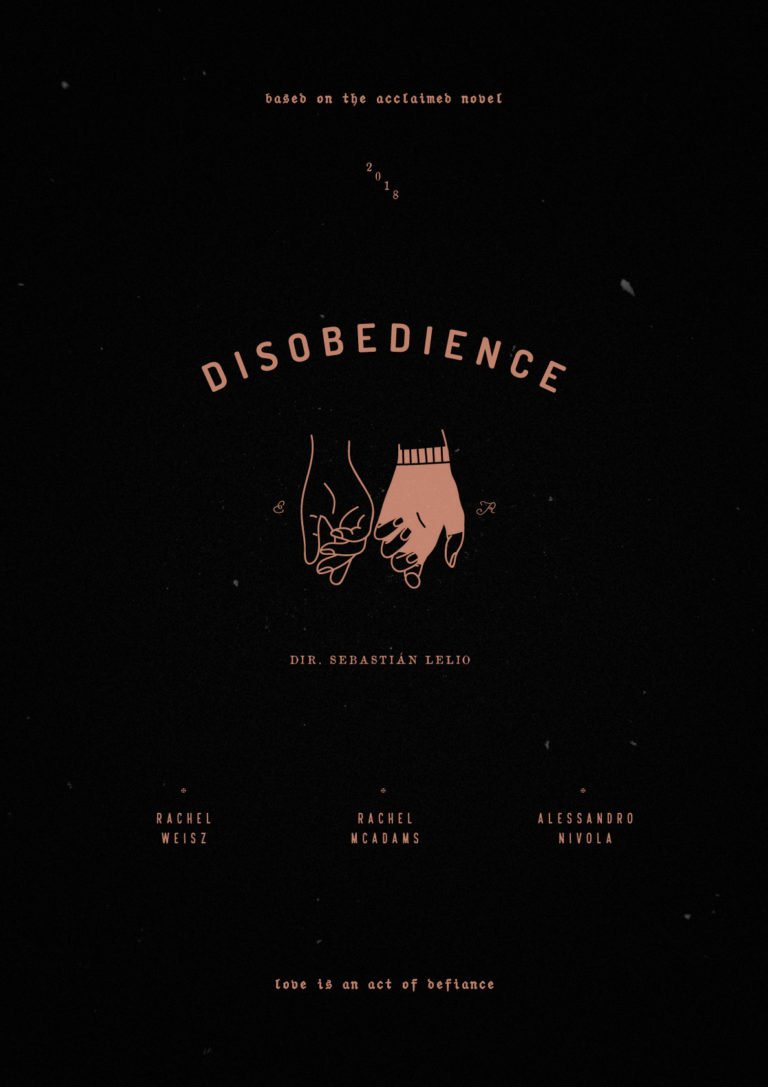"Shallow Romantic Justification for Sin"

| None | Light | Moderate | Heavy | |
|---|---|---|---|---|
| Language | ||||
| Violence | ||||
| Sex | ||||
| Nudity |
What You Need To Know:
DISOBEDIENCE is too slow. Also, its story is abhorrent and rather conventional and intellectually shallow. For example, the movie accepts without question the idea that, because of her lesbian desires, Esti must leave her husband’s side and freely embrace those illicit desires. Even Dovid accepts this idea at the end. Of course, the Bible admonishes us, in Ezekiel 18:30-32, Acts 3:19, and many other passages to turn away from such sins and turn toward God.
Content:
More Detail:
DISOBEDIENCE is a drama about a Jewish lesbian woman living in New York who returns to London for her father, a respected rabbi’s, funeral and renews her teenage affair with the wife of a childhood friend, who was her father’s male protégé. DISOBEDIENCE is rather slow and has a strong Romantic, feminist, politically correct worldview where the rabbi’s protégé rejects biblical admonitions against homosexual behavior and accepts his wife’s need to leave their marriage and pursue a homosexual lifestyle.
The movie opens with the elderly rabbi starting to give a sermon about free will when he suddenly collapses. Ronit, the rabbi’s estranged daughter, learns about his sudden death. She returns to London for the funeral and is surprised to learn that her teenage friends, Dovid and Esti, got married. Dovid, who’s also the late rabbi’s protégé, invites Ronit to stay with them, and she agrees.
Although one brief scene in New York shows Ronit hooking up with a man in a nightclub restroom, it becomes clear that Ronit’s lesbian, feminist attitudes led to her estrangement with her father. Also, as time passes, Ronit and Esti renew the lesbian relationship they had when they were teenagers.
What will Esti’s husband, Dovid, do when he finds out about this affair? Also, will Esti go back to New York with Ronit?
DISOBEDIENCE is too slow. Also, its story is abhorrent and rather conventional as well as intellectually shallow. For example, the movie accepts without question the idea that, because of her lesbian desires, Esti must leave her husband and freely embrace those illicit, sinful desires. Even Dovid accepts this idea at the end of the movie. In fact, he ends up publicly telling the Jewish congregation, which he’s supposed to take over from his mentor, that the Jewish and biblical doctrine of free will supports this idea. Of course, Dovid’s comments to his Jewish congregation doesn’t match what the Bible actually teaches and even seem to be heretical. For instance, his comments here discount the possibility of repentance, redemption and deliverance from sin. This possibility is clearly taught by God in the Hebrew Scriptures (see Ezekiel 18:30-32, for example, where God admonishes the Israelites to repent, or turn away from, their sins and return to God), and it comes to fruition in the vicarious atonement, life, death and resurrection of the Messiah, Jesus Christ, in the New Testament. Contrary to the movie’s conclusion, therefore, the Bible teaches (whether you’re Jewish OR Christian) that, even though we may be filled with a sinful desire to disobey God’s moral teachings in an area, we don’t have to act on that desire, but can turn away from it and turn toward God, who will deliver us from our sinful natures and give us new hearts leading us toward righteousness.
Basically, DISOBEDIENCE is just a shallow Romantic, feminist justification for sexual sin and lust.



 - Content:
- Content: 



 - Content:
- Content: 